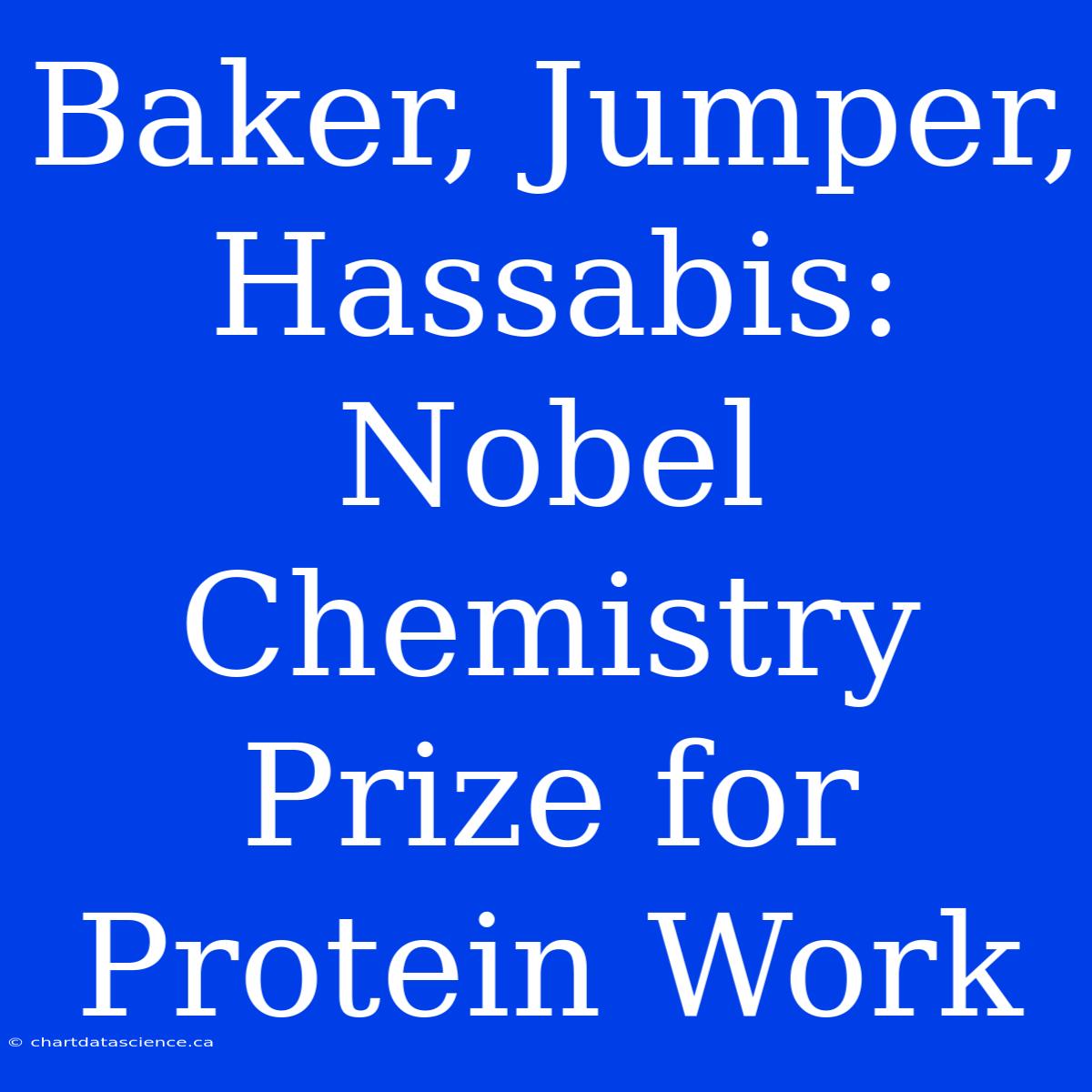Baker, Jumper, Hassabis: Nobel Chemistry Prize for Protein Work
The 2023 Nobel Prize in Chemistry has been awarded to three scientists for their groundbreaking work in protein design and artificial intelligence. David Baker, Demis Hassabis, and John Jumper were recognized for their development of computational tools that have revolutionized our understanding of proteins and their potential for various applications.
Unraveling the Secrets of Proteins
Proteins are the workhorses of life, responsible for everything from carrying oxygen in our blood to building our bones. Their structure is key to their function, but traditional methods for determining protein structures are often time-consuming and laborious. Baker, Jumper, and Hassabis tackled this challenge head-on, using different approaches to unlock the secrets of protein structure.
Baker's Rosetta: A Modeling Powerhouse
David Baker, a pioneer in protein design, developed the Rosetta software suite. Rosetta uses computational algorithms to predict the three-dimensional structure of proteins based on their amino acid sequences. This tool has proven invaluable for scientists studying everything from cancer to infectious diseases. Baker's work has not only advanced our understanding of existing proteins but also enabled the design of entirely new proteins with tailored functions.
Jumper and Hassabis: AlphaFold's AI Revolution
John Jumper and Demis Hassabis, working at the forefront of artificial intelligence research, spearheaded the development of AlphaFold, a deep learning model that can predict protein structures with remarkable accuracy. AlphaFold, developed by DeepMind (founded by Hassabis), uses a technique called deep learning to analyze vast amounts of data, enabling it to learn complex patterns and predict protein structures with unprecedented speed and accuracy.
Impact and Future Potential
The work of Baker, Jumper, and Hassabis has had a profound impact on the fields of biology, medicine, and bioengineering. AlphaFold, for example, has helped scientists understand the structures of proteins involved in diseases like Alzheimer's and Parkinson's, opening up new avenues for drug development. Furthermore, the ability to design new proteins with specific functions has the potential to revolutionize fields like biomanufacturing, material science, and environmental remediation.
This Nobel Prize underscores the crucial role that computational tools and artificial intelligence are playing in scientific discovery. The breakthroughs made by these scientists will continue to shape our understanding of the molecular world and have far-reaching implications for the future of medicine and technology.

